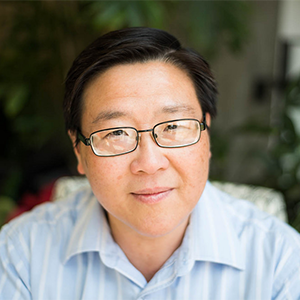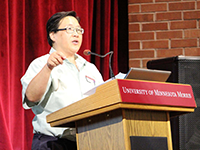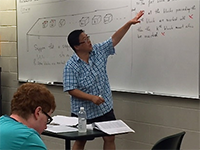
In Ng’s view, she was a part of University governance from day one. Every faculty at UMM is a part of the campus assembly, the campuswide governance body. And, Ng adds, “UM-Morris is a very egalitarian campus, and so technically, I became involved in shared governance when I started as a regular faculty.”

Ng admits that when she was a brand new faculty, she was very naive. “I had some weird notion that college administrators made lousy professors,” she says. A few years years later, a chief administrator retired and there was some shuffling of campus leadership. Several faculty, including Ng, were asked to take on administrative duties as part of their appointments. Ng asked her then boss, “Why do you take all these award winning and excellent teachers from the classroom and make them administrators?”
The response was, “Would you rather I choose lousy teachers to lead academic affairs?” That, Ng says, changed her perspective and stereotype of administrators. In turn, Ng says she has learned much by being on systemwide committees and considers herself lucky to be able to serve. “I am a better faculty and a more mindful academic administrator for having served on systemwide shared governance,” she says. Ng says when a solution presents itself or is arrived at, she asks if that solution solves more problems than it creates.

An essential skill, Ng notes, and one that she continues to hone, is learning how to balance the “Big Picture” and the detailed ramifications of policies. She said, “Finding a healthy balance between being consultative and moving forward is also another key to how I usually approach governance.”